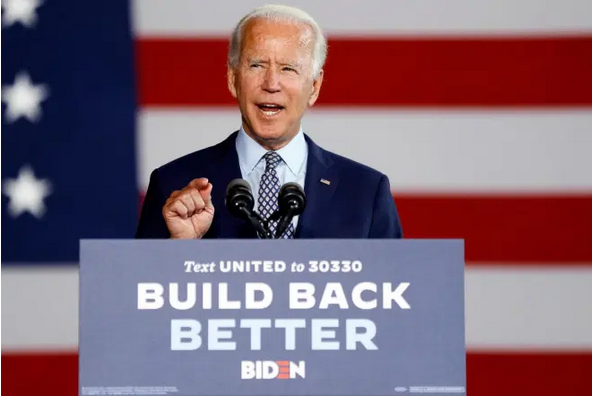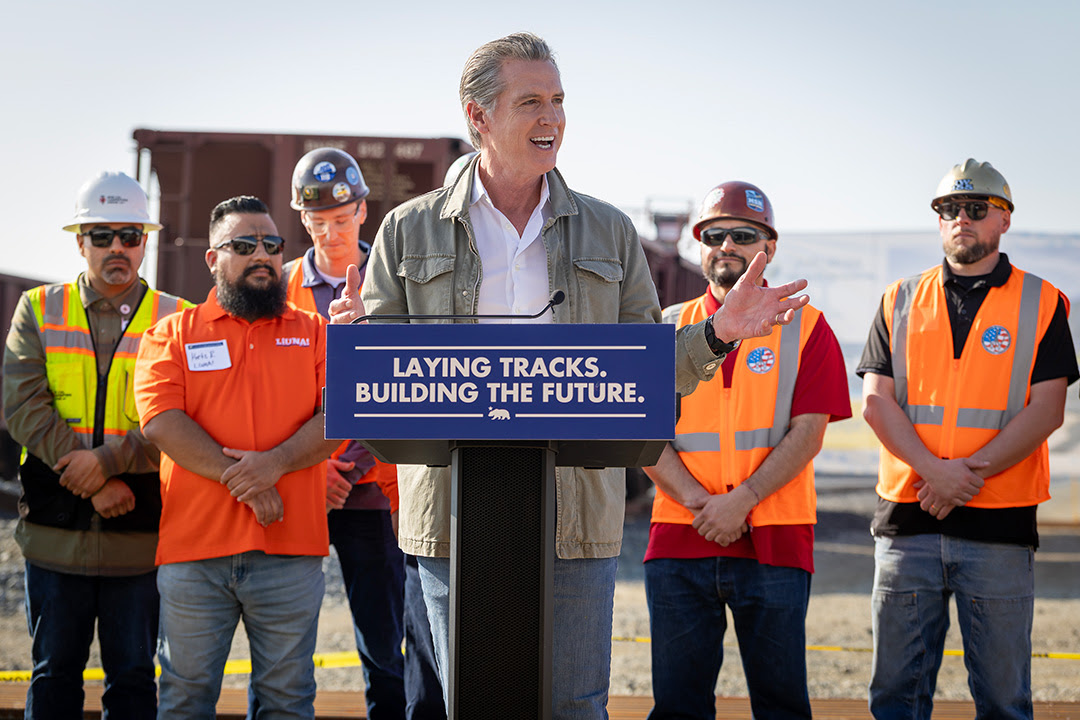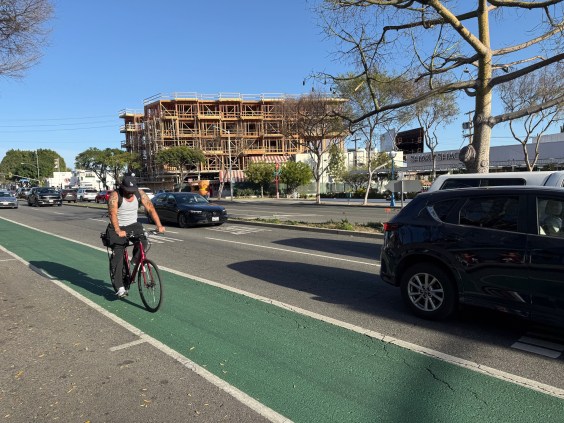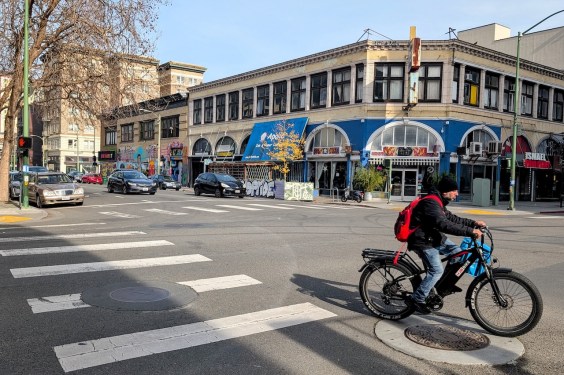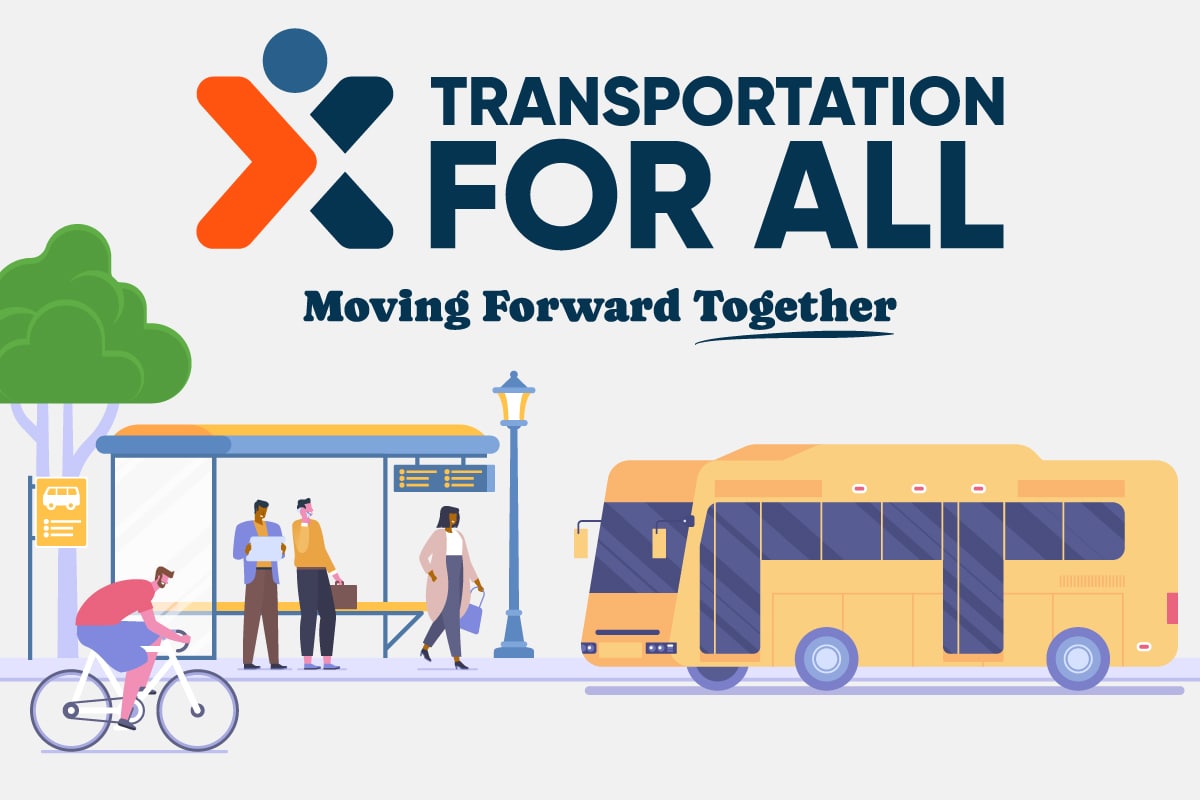When opponents of Biden's infrastructure plan argue that most of the package isn't devoted to building "traditional" infrastructure like roads and bridges, they're ignoring something absolutely critical: that America's transportation landscape will never be truly safe or sustainable until we tackle our broken social safety nets and our broken street designs.
Top Republican lawmakers have decried the $1.9-trillion American Jobs Plan, which devotes nearly as much money to workforce development and care infrastructure programs (like expanding access to daycare, eldercare, and affordable housing) as it does to the steel-in-the-ground physical assets that make our society function.
Former Office of Management and Budget Director Russell Vought claimed on Fox News radio that "only about 5 to 7 percent of it is actual roads and bridges and ports and things that you and I would say is real infrastructure," a quickly debunked stat which was nonetheless parroted by Senate Minority Leader Mitch McConnell. The Senate's fourth-highest ranking member of the GOP, Roy Blunt (R-Mo.) later upped that number slightly, estimating that 30 percent of the money went to "real" infrastructure "if you stretch the definition of infrastructure some" to include water and broadband infrastructure, in addition to transportation facilities.
The top Republican on the House Transportation and Infrastructure Committee, Rep. Sam Graves (R-Mo.) even went so far as to say the President's infrastructure package "needs to be a transportation bill," further adding that "it needs to be about roads and bridges" rather than, presumably, transit infrastructure, pedestrian infrastructure, water infrastructure and cycling infrastructure.
Even as House Majority Leader Nancy Pelosi (D-Calif.) seemed to agree that the transportation elements of the bill should be pried apart from the rest of the packages — if only for strategic reasons — progressive Democrats were quick to point out that the assets that keep our trains, wifi and water running absolutely do qualify as infrastructure. And so does housing and hospitals, not to mention the workforce that cares for children and seniors.
Health care is infrastructure.
— Ayanna Pressley (@AyannaPressley) April 9, 2021
Housing is infrastructure.
Child care is infrastructure.
Elder care is infrastructure.
But here's the thing: even if one defines "infrastructure" in the narrowest possible terms — namely, around the transportation system alone — the other elements of Biden's package are still inextricably essential to that system. And the fact that such investments are often siloed away from the transportation conversation is a big part of why U.S. roads are so deadly and polluting today.
As every sustainable transportation advocate well knows, even the greenest, safest roads and transit networks are worth approximately nothing if the destinations that they connect are located so far apart that no one can conveniently use them. A worker who lives in a world-class bike city will still probably opt to drive if she can't afford housing within 20 miles of her job, and she'll certainly load her child into the car seat if the only daycare she can afford is all the way across town. Even a fully disability-accessible and efficient transit network isn't a silver bullet if geometry and poor transit conspire to undermine people's ability to choose a more-sustainable form of transportation.
Of course, the vast majority of American communities have neither an efficient transit network nor a stellar active transportation network. Chances are, even those who have the good luck to live near their most frequent destinations are choosing between a quick drive and a dangerous walk — and considering that 35 percent of U.S. driving trips are under two miles, it's pretty clear which one they tend to pick.
Would love the Biden Infrastructure Plan to support new schools to be built in neighborhoods and not on busy roads with cheaper land. That is how you create a "Healthy School" one that the children can walk or bike to. @SecretaryPete https://t.co/urTU6DmdaU
— Sam Balto (@CoachBalto) April 9, 2021
Community design that supports access to basic care services is foundational to making sustainable transportation a reality. It's the core of the popular 15-minute city concept that has helped cut pollution and traffic in cities like Paris, as well as Sweden's one-minute city concept and countless other tactical urbanism projects that seek to put food, shelter, education, jobs, healthcare, and more within strolling or rolling distance of wherever we are.
And as remote work continues to surge during the coronavirus age, access to broadband can truly bring income and healthcare within easy clicking distance. Call it the Zero-Minute City.
$650 billion for broadband, water infrastructure and the electric grid.
— Angie Schmitt🚶♀️ (@schmangee) March 31, 2021
I think with increased telecommuting, telemedicine, we should start thinking of broadband as part of the sustainable transportation system FWIW
Democrats have, historically, been more likely than Republicans to look holistically at the transportation needs of Americans — or at least, they tend to mean "transit, and things that make transit affordable" in addition to "roads and bridges" when they say the word "infrastructure." (And it must be said that for far too long, both parties have been overly supportive of highway expansions that do nothing besides temporarily juice state economies, leaving communities with a hangover of maintenance liabilities, pollution, and traffic deaths).
But historically, even Democrat-authored infrastructure packages have tended to ignore the importance of community design to building a strong transportation network, shunting off investments in housing and neighborhood-level care infrastructure to other pieces of legislation. In that way, Biden's American Jobs Plan is a unique piece of legislation — and arguably, the most forward-thinking one the party has put forward in years.
Of course, that's not to say that the president's plan is a perfect progressive clarion call, or even that it's necessarily all that sustainable. It has certainly not gone unnoticed by advocates that the bill devotes 35 percent more money to consumer rebates for electric cars and investments in a national charging network than it does to intracity mass transit; others, such as Rep. Alexandria Ocasio-Cortez (D-N.Y.), have argued that it's not nearly big enough to meet the historic challenges of climate change.
There's also a good argument to be made that Amtrak Joe bundled things like federal support for zoning reform into his rail-and-roads infrastructure package not because he's a 15-minute city proponent, but because he recognizes that an evenly divided Congress will probably need to pass one mammoth piece of catch-all legislation through reconciliation, rather than risking several smaller bills facing a GOP filibuster.
And by the way: These varied projects aren’t grouped into one mega-bill because of the word infrastructure.
— Ezra Klein (@ezraklein) April 7, 2021
They’re grouped into one mega-bill because the filibuster has broken the Senate, and budget reconciliation forces a limited number of mega-bills.
But for all its faults, if the American Jobs Plan passes, it will be the first major federal bill in recent memory that puts transportation, land use, and access to care infrastructure under the same umbrella — right where they belong.
